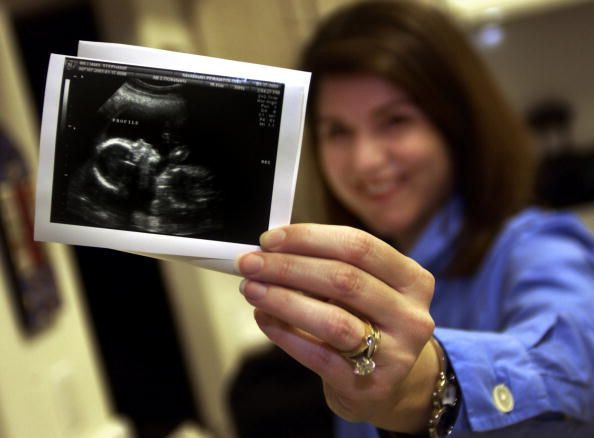Genetic Testing Sometimes Finds Chromosomal Abnormalities In Embryos, But They May Turn Normal Before Birth

Genetic testing among expecting parents, despite being a new and relatively undeveloped aspect of science, has seen a consistent rise in popularity. These tests are designed to give parents a snapshot of their child’s risk for genetic abnormalities by looking at the number of abnormal cells in the fetus and/or placenta. However, a recent study from Cambridge University suggests parents shouldn’t put too much faith in these test results. The research found that the fetus will often self-correct any cell abnormalities that exist during the course of the pregnancy, and result in few, if any, adverse effects on the fetus’ health.
Published online in Nature Communications, the study used a mouse model to investigate how much of an influence abnormal cells during fetal development affected the eventual health of a child. For their research, the team, led by Professor Magdalena Zernicka-Goetz, purposely created 30 mouse embryos with chromosome abnormalities using a drug called reversine.
According to the National Human Genome Research Institute, chromosomes are the structures within our bodies that hold the genes that will determine who we will become. They exist in the nucleus of each cell, where there are typically 23 chromosomal pairs, or 46 in total. We inherit half of these from each parent, and they pair up during conception.
Having an abnormal number of chromosomes can lead to several developmental disorders. For example, children born with three copies of chromosome 21, rather than the usual two copies, will develop Down syndrome. Researchers believe the genes on this extra copy of chromosome 21 disrupts normal fetal development, and causes the physical and intellectual characteristics associated with the condition.
Mothers who believe their children are at risk for developing a genetic disorder may receive a chorionic villus sampling (CVS) between the 11th and 14th week of pregnancy, and amniocentesis between 15 and 20 weeks of pregnancy. These tests analyze either the cells in the placenta or those shed by the fetus to look for abnormalities, such as having the wrong number of chromosomes or structural anomalies. However, the results from the Cambridge study suggest these early discrepancies may not always accurately predict the child’s future health.
Results from the mouse study showed that when a the fetus had a mixture of both normal and abnormal cells, the abnormal cells would die via a natural process called apoptosis. "The embryo has an amazing ability to correct itself," Professor Zernicka-Goetz said in a recent statement. "We found that even when half of the cells in the early stage embryo are abnormal, the embryo can fully repair itself.”
Zernicka-Goetz added that if this same process occurs in humans, then early genetic testing may not be the most accurate method for predicting a child’s risk of birth defects.
The findings are important because some parents terminate their pregnancy soon after seeing their test results. However, it wouldn’t be the first time that genetic testing proved inaccurate. In 2014, the New England Center for Investigative Reporting found that nearly half of all positive results for prenatal risks were actually false alarms — they incorrectly indicated fetuses as having high risks for chromosomal conditions.
In an email to Medical Daily, Zernicka-Goetz said mothers should still take these tests because they “are perfectly accurate.” However, upon receiving their results, “they need to be carefully interpreted.” This is because the cells are taken from the placenta and not the actual fetus, and at this point, not even experts can confirm what the presence of abnormal cells indicates.
Source: Bolton H, Graham SJL, Van der Aa, N, et al. Mouse model of chromosome mosaicism reveals lineage-specific depletion of aneuploid cells and normal developmental potential. N ature Communications . 2016



























